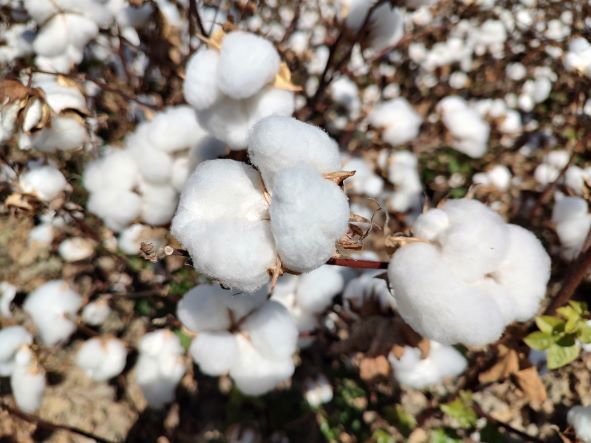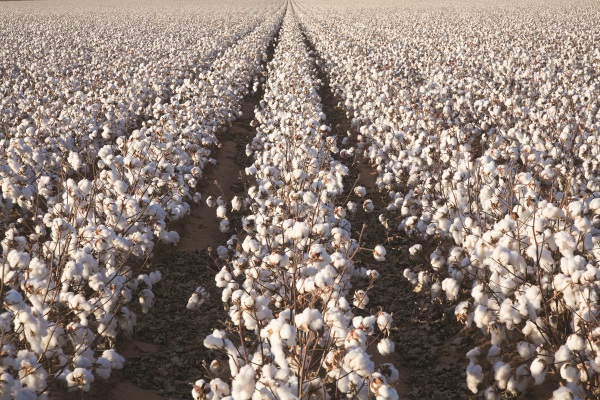American Cotton Shippers Association
Doing business in any industry—let alone one as volatile as cotton—goes hand-in-hand with a certain amount of risk. It’s the very nature of opportunity. Jordan Lea, with dual degrees in business administration and economics, knows very well that the biggest risk you can take is to never take one.
However, in his role as president of the American Cotton Shippers Association (ACSA), he still spends a good deal of his time working to increase the opportunities and minimize the risks for association members.
Perhaps the most dangerous of all risks in the cotton industry is wasted time. That’s why Lea has focused so much on helping attendees make the most of every opportunity at ACSA’s 87th Annual Convention, to be held at the Four Seasons Hotel, in Washington D.C., May 11-13. Its theme is, “State of the Cotton Trade 2011: Information, Policy, Relationships.”
“We’ve experimented, after seeing this trend in other meetings, with more of an open-ended format that encourages audience participation and gives us greater feedback,” says Lea, who is also chairman and CEO of Eastern Trading Co. “Today, when you come to an ACSA meeting, you have access to everything we’re doing here, whether it be a delegation meeting or a policy forum.”
There’s more at this year’s ACSA meeting for attendees than there has ever been before, and although some people in the past didn’t realize it, everything that’s on the program is open to attendees.
“Success in today’s business environment requires efficiency and making the best use of resources—and none of those resources are more important than the time our attendees dedicate to being here,” Lea says. “Our goal is to ensure they get the maximum value out of their time. One example of that is the delegation of Turkish textile executives. It’s no secret that when mills are at a meeting, it attracts more people. We want to make this an opportunity where attendees can not only learn, but also get some business done.”
To help attendees make the best use of their time, Cotton International sat down with Lea to discuss some of the highlights of ACSA’s three-day convention:
Wednesday, May 11
11:00 AM – Turkish Textile Executive Delegation Meeting
12:00 PM – Reception and Luncheon for Turkish Delegation
6:30 PM – Welcome Reception at Seasons Restaurant, Four Seasons Hotel
With the cooperation of Cotton Council International (CCI) and other industry segments, ACSA will welcome a Turkish textile delegation on the opening day of the event. “We’ve always gotten great support from Turkish agents, with six to eight who represent U.S. merchants in attendance in most years,” Lea says. “They will be able to provide some translation if necessary, and will be there to answer questions and facilitate the building of U.S.-Turkish relationships.”
True to ACSA’s goal of combining education with business, attendees will have the opportunity to meet the delegates later that evening in a more social setting. “We’ll be having a reception for the Turkish delegation on Wednesday night, so attendees will be able to meet them all and begin to develop their own personal relationships. It’s important that members and attendees are free to spend time with customers and potential customers.”
Thursday, May 12
7:30 AM – Industry Update Breakfast
– Frank Lucas (R – Ok.), House Agricultural Committee Chairman
– Ed Zaninelli, Vice President of Westbound Transpacific Trade, Orient Overseas Container Line
11:00 AM – Political and Policy Forum
– Senator Saxby Chambliss (R-GA)
6:30 PM – Reception at Woodrow Wilson Home, Embassy Row
In what should be one of the most eagerly anticipated sessions, Rep. Frank Lucas will discuss the 2012 Farm Bill and its potential impact on cotton. “Mr. Lucas is from Oklahoma and has a good amount of cotton in his district,” Lea says, “and that’s important to us because we wanted someone who considers cotton an important crop.”
Beginning with last year’s meeting, ACSA has been trying to put more emphasis on the logistical side of the business in an effort to make the United States the top service provider in the cotton industry, Lea says. The association has made a concerted effort to get every major company to put someone on ACSA’s Warehouse, Ocean Transportation and Logistics Committee to help unify the voice of the cotton trade. That’s because disaster often follows a failure in logistics.
“Many deals are done on letter of credit (L/C) terms, and if you can’t get your cotton out of the warehouse, or if you can’t get equipment to the port to get your shipment on a vessel, you can’t adhere to the sales contract as it’s written,” Lea says. “Committing ourselves to upgrading logistics operations helps protect our members from potential defaults and generally makes the United States a more attractive trading partner.”
The second speaker in the Industry Update Forum, Sen. Chambliss, is the former Chairman of the Senate Agricultural Committee. Georgia is the second-largest cotton producing state in the country, and Savannah is the second-largest port for cotton exports. So once again, ACSA was targeting political figures for whom cotton has great importance.
“As an elected official since 1994 (he moved from house to Senate in 2002), Sen. Saxby Chambliss is a veteran of the farm bill process many times over,” Lea says. “He is also one of ‘the gang of six’, a bipartisan group of negotiators that is working on a deficit reduction plan. As a result of his extensive work on both the deficit and the Farm Bill, he will be able to offer real insight on the future of government’s role in agriculture.”
Friday, May 13
Keynote Presentation
10:30 AM – Eskine Bowles, Co-Chair, National Commission on Fiscal Responsibility and Reform
Market Forum
11:00 AM – David Hightower, The High-tower Report
– Christine Cochran, President, Commodity Markets Council
– Matthew Shay, President and CEO, National Retail Federation
7:00 PM – Black Tie Reception and Dinner, Four Seasons Hotel
The focus on the last day of the event will be on the broader U.S. economy and will be more commodity-specific than the other days, Lea says. “Mr. (Eskine) Bowles will take a look at some of the broader budget issues, which is important because his Commission has suggested some severe cuts to Market Access Program (MAP) funding,” Lea says. “CCI and other organizations use that funding to promote cotton and other agricultural products overseas, so his proposals are very important. A lot of what makes U.S. cotton so competitive around the world is a direct result of what CCI does.”
In the Market Forum, David Hightower, Cochran and Shay will discuss macroeconomic issues, the state of the commodities markets, and the health of the retail industry. “We’ve had apparel deflation for a long time and meanwhile, the costs of operating a retail story—rent, electricity, insurance—have all been going up,” Lea says. “And with the advent of e-commerce, things have changed so much for retailers, in a fairly short period of time. We need to know what kind of effect $2 cotton is going to have.”
Once Is Never Enough
Lea’s tenure as ACSA president has been unconventional; he joined the association as second vice in 2008 and has been president for almost two years. Normally a one-year term, Lea assumed the presidency when his predecessor resigned early.
While that is a little unorthodox, it’s nothing compared to the history-making events that have occurred in cotton during his tenure. “It’s always darkest before the dawn, as they say, and I guess that’s what my time as ACSA president has been like,” he says. “In the months after March 2008, some of the most reputable and storied firms in the industry got out of the business, along with who knows how many smaller firms.
“That was obviously a difficult time, but it also gave me a sense of determination, that the collapse of this industry wasn’t going to happen on my watch. To some degree, it shifted my focus from trying to outdo my business competitors to defending this industry that we all rely on for survival,” he says. The textile industry is one of the oldest in human history, and the world needs cotton. It has been both humbling and gratifying to be in a leadership position as the whole cotton industry—not just in the United States, but around the world—pulls together to do what it needs to do to survive.”








